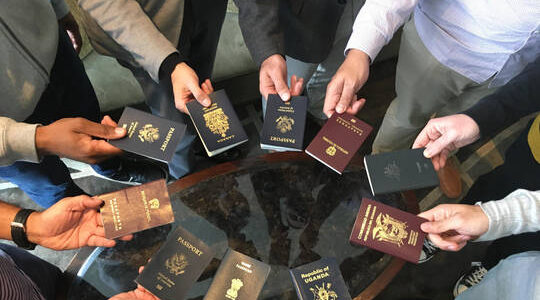
Three Asian nations sit atop new rankings of passports that warn of Covid restrictions worsening ‘travel apartheid’ between rich and poor countries
Citizens of Japan and Singapore hold the most travel-friendly passports, according to a new ranking of passport strength that warns of a growing gap in travel freedoms enjoyed by rich nations versus those afforded to poor ones.

Without accounting for Covid-19 restrictions, the rankings for early 2022 – released on Tuesday by UK firm Henley & Partners – mean that Japanese and Singaporeans can apparently access 192 countries without a visa. Meanwhile, Afghan nationals can travel visa-free to only 26 destinations.
Another Asian country, South Korea, is tied with Germany for second place on the list of 199 countries. The rest of the top 10 are dominated by EU nations, with the UK and US ranked sixth, and Australia, Canada, and Eastern European countries rounding out the highest performers.

Released with the rankings was a study on global mobility that found the travel gains seen by citizens of upper middle- and high-income countries have “come at the expense” of lower-income nations and those deemed to be “high-risk” in terms of security and other considerations.
The report also said that this “inequality” in global mobility has been exacerbated by travel barriers over the course of the pandemic, with UN Secretary-General Antonio Guterres recently likening restrictions placed against mainly African nations to “travel apartheid.”
“Expensive requirements associated with international travel institutionalize inequality and discrimination,” said Mehari Taddele Maru, a professor at the Migration Policy Centre, adding that developed nations did “not always [share]” the developing world’s willingness to respond to “changing circumstances.”
“Covid-19 and its interplay with instability and inequality has highlighted and exacerbated the shocking disparity in international mobility between wealthy developed nations and their poorer counterparts,” Mehari added.
Meanwhile, the report forecast further uncertainty on travel and mobility for the rest of the year, taking into account the rise of the Omicron variant of the coronavirus. The emergence of “such a robust new strain” was a “major geopolitical failure” on the part of the US, UK, and the EU for not providing better funding and vaccine supplies to southern Africa, according to comments by Columbia University professor Misha Glenny accompanying the report.
Credit: Rt News
